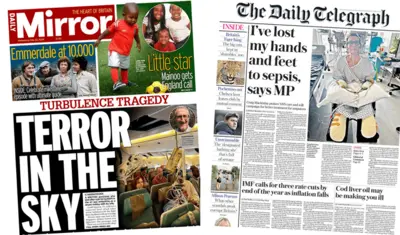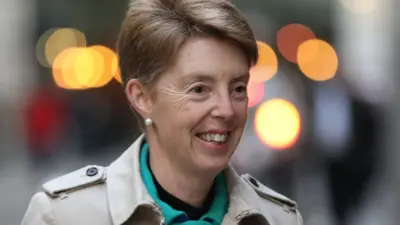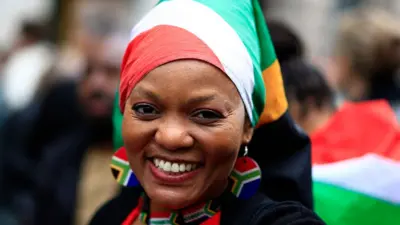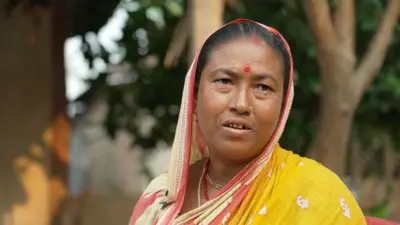We've updated our Privacy and Cookies Policy
We've made some important changes to our Privacy and Cookies Policy and we want you to know what this means for you and your data.
£5bn for full fibre - do the numbers add up?
- By Rory Cellan-Jones
- Technology correspondent
Image source, PA Media
Three months ago, Boris Johnson set a hugely ambitious target - giving every home in the UK full-fibre broadband by 2025. Now, at the Conservative Party conference, the Chancellor, Sajid Javid, has promised the funds to make that happen.
Or has he?
In the press release previewing a speech promising as much as £50bn in new infrastructure spending, there is this section about broadband.
"We are setting out plans to invest £5bn to support the rollout of full-fibre, 5G and other gigabit-capable networks to the hardest-to-reach 20% of the country," it says.
"This doubles the previous commitment to support rollout to the hardest 10%."
Last year's Future Telecoms Infrastructure Review, commissioned by Theresa May's government, set an "ambitious target" of full fibre - a pure fibre-optic cable running directly into the building rather than to a roadside cabinet - reaching 15 million premises by 2025.
The whole country - including about 30 million homes as well as millions more businesses and public buildings - would be covered by 2033, it added.
And a government statement at the time said this would "require require additional funding of around £3bn to £5bn to support commercial investment in the final 10% of areas".
Fresh target
But in June, as he stood for the leadership of the Conservative Party, Boris Johnson described that strategy as "laughably unambitious".
Writing in the Daily Telegraph, he said: "We should commit now to delivering full fibre to every home in the land not in the mid-2030s - but in five years at the outside."
That 2025 target was reaffirmed - albeit somewhat less explicitly - in speeches after Mr Johnson won the Conservative leadership contest and as he entered No 10. There was talk of "fantastic full-fibre broadband sprouting in every household".
Image source, Getty Images
Now, the chancellor is promising £5bn to make that sprouting happen - but fulfilling that pledge to move the target eight years earlier should mean the cost goes up. After all, this is a massive building project. Scarce workers will have to be recruited and trained and materials bought.
Tell your builder your extension has to be built by Christmas, not next summer and you'll find the bill spirals.
And it's not just about having a tighter deadline.
The 2033 target envisaged the government providing funds to cover the 10% of the country that would not be reached by private-sector investment.
Moving the goal forward means it now expects 20% of the UK won't have been covered by the commercial sector in time.
So, the chancellor appears to be expecting to get a lot out of the £5bn, assuming he really is sticking to the promise of full-fibre for all - a much faster more extensive programme to bring the best possible broadband to everyone, without dipping deeper into public funds.
I was given a glimpse of some of the issues last month, when I visited the remote island community on Grimsay, in the Hebrides, which had recently been given full-fibre broadband.
It had proved pretty expensive, something like £4,000 to hook up each household, with much of the funding coming from the Scottish government.
And while the inhabitants were naturally enthusiastic about the project, their neighbours on other islands had immediately begun asking: "What about us?"
Watering down?
There is one more puzzling thing about the chancellor's speech - does it contain a watering down of the prime minister's full-fibre pledge?
It talks of investment not just in fibre but in "5G and other gigabit-capable networks".
Now, some in the telecoms industry have suggested laying a fibre connection up every remote farm track or mountainside may not be sensible when other technologies such as 5G or even low earth-orbit satellites could supply similar speeds.
But fibre purists - and that seems to include the prime minister - insist it is the only reliable option if we are not to have a two-speed country with rural areas left in the slow lane.
And Mr Javid's team is not providing much more clarity, except to say "gigabit-capable" broadband networks will be provided to everyone and further details will be set out later this year in the National Infrastructure Strategy.
Top Stories
Features & Analysis
Most read
Content is not available








